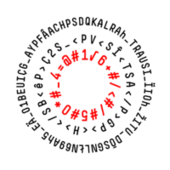In theory, machine translation (MT) should work especially well on a deep (semantic) level of language processing, where one would expect to be much less confronted with differences between languages and particularities than on the level of linguistic surface. Contrary to this, the statistical MT systems that have been very successful in recent years have worked practically only on the surface level without using much linguistic knowledge.
Today, statistical MT systems seem to have reached a point where it is more and more difficult to achieve further quality improvements in a purely data-driven way. Even if the demand for the integration of linguistic knowledge into these systems has been uttered frequently, we currently observe a lack of principled research in this direction.
In order to break the way to machine translation of higher quality, the goal of the QTLeap project is to research on and deliver an articulated methodology for machine translation that explores deep language engineering approaches. Further chances of success can thus be explored by machine translation systems that are based on deeper semantic engineering approaches. This progress is further supported by recent advances in terms of lexical processing. These advances have been made possible by enhanced techniques for referential and conceptual ambiguity resolution, and supported also by new types of datasets recently developed as linked open data. The project QTLeap explores novel ways for attaining machine translation of higher quality that are opened by a new generation of increasingly sophisticated semantic datasets and by recent advances in deep language processing.
In the project consortium, DFKI will particularly make use of its expertise in hybrid machine translation, evaluation of translation quality, and deep linguistic processing.
Partners
- University of Lisbon, Portugal, Head: António Branco (project coordinator)
- Charles University in Prague, Czech Republic, Head: Jan Hajič
- Bulgarian Academy of Sciences, Bulgaria, Head: Kiril Simov
- Humboldt University Berlin, Germany, Head: Markus Egg
- University of Basque Country, Spain, Head: Eneko Agirre
- University of Groningen, The Netherlands, Head: Gertjan van Noord
- Higher Functions, Lda, Portugal, Head: Filipe Barrancos


